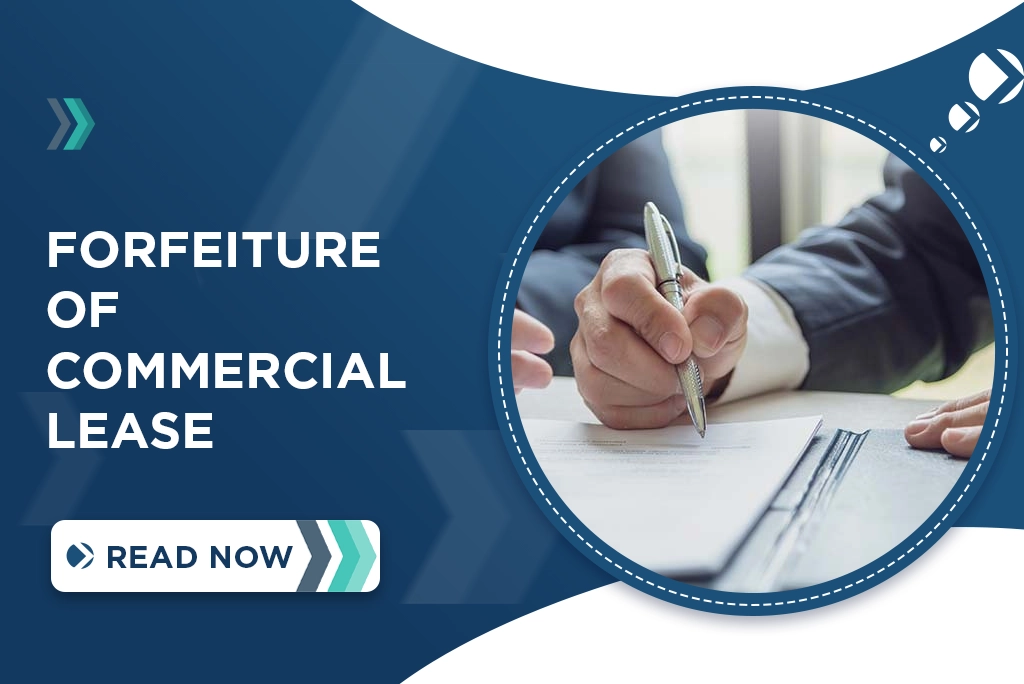
Forfeiture of Commercial Lease – Guide for Landlords
11th October 2023
Forfeiture of Commercial Lease (or Commercial Lease Forfeiture) is a process in the UK that allows landlords to end a lease when tenants break the lease rules.
Common reasons for this include not paying rent on time, not taking care of the property, or having financial problems that lead to the nonpayment of rent.
Regaining possession of the property when this happens should ultimately be the first thing on the mind of any landlord.
Sadly, many landlords accept rent is going to be left without payment and refuse to do anything about recovering it or forfeiting the lease.
This process is important for landlords to protect their property. However, it can be complicated, especially if you’re not familiar with the law.
Keep reading to learn more about the process and how a Lease Forfeiture service provider can make this process easier.
The Steps of Commercial Lease Forfeiture
Any landlord that finds themselves with unpaid rent can instruct a high court enforcement agent to forfeit a commercial lease.
It is worth noting that if you are suffering from non payment of rent, we also provide Commercial Rent Arrears Recovery (CRAR).
The forfeiture of a commercial lease allows landlords to repossess their commercial property under Common Law.
To better understand how Commercial Lease Forfeiture works, we have outlined the different steps of the process below.
Warning Notice
The Forfeiture of Commercial Lease process usually starts with a warning notice, known as a Section 146.
This notice tells the tenant what they did wrong and gives them time to fix it.
Commercial landlords should give their tenants time to rectify this and amend any property disputes.
After all, commercial rent arrears may have arisen from a short-term financial difficulty.
Legal Process
If the tenant has breached the lease and doesn’t fix the problem, the landlord has to go to court to get back the property.
Getting back the commercial or residential property can involve paperwork and going to court hearings/overseeing court proceedings.
It is common for landlords to use a dedicated Commercial Lease solicitor to help with the forfeiture of lease legal proceedings.
There are various methods to choose from when it comes to dispute resolution for lease forfeiture.
Taking Back the Property
After winning in court, the landlord can take back the commercial property through peaceable reentry.
This means the tenant failed to uphold their lease rules and has to leave.
Stopping the tenant from reentering the property, the landlord can focus on fixing any damage or making sure the property is secure.
This is how straightforward the process is for a landlord to forfeit a Commercial Lease.
Instruct DCBL to Help With Forfeiture of Commercial Lease
Using a Commercial Lease Forfeiture service provider, such as DCBL, can make this process easier for landlords.
The most frequent violation of a lease agreement is when the tenant does not fulfil their payment obligations as outlined in the contract.
If you ever need to end a lease because of tenant problems, use DCBL to make the process less stressful and more successful.
From the moment that you instruct us, we will schedule our attendance to peaceably gain access to the property.
This is usually done within 24 hours of you instructing us, and sometimes even on the same day.
When we enter, we log an inventory of goods, and we take photographs and meter readings. Following this, we will display possession notices and then secure the property.
We take your grounds for forfeiture extremely seriously, ensuring you are provided with the best service possible.
DCBL’s Solution to Debt Recovery and High Court Enforcement
DCBL have over 20 years of experience in debt recovery and high court enforcement, providing a “One Solution” service for our clients.
Should cases escalate to litigation, we will involve our sister company, DCB Legal, to help with this.
DCB Legal are authorised and regulated by the Solicitors Regulation Authority and have the expertise needed in Commercial Law.






